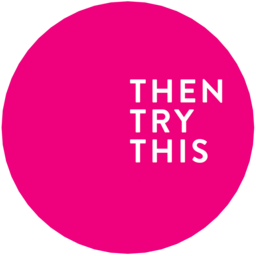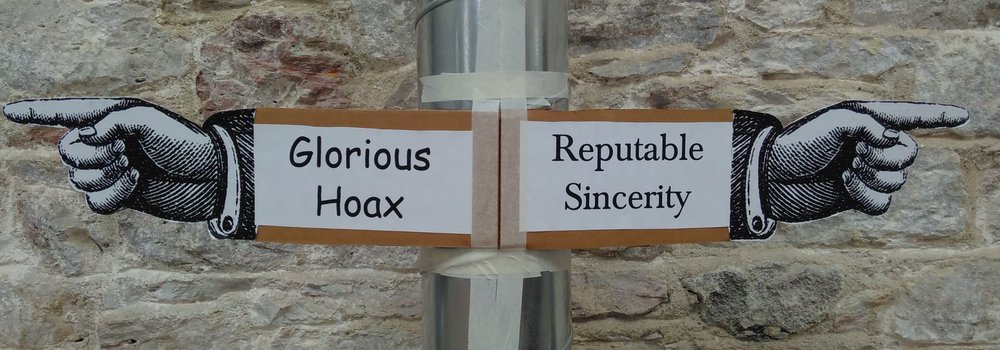About the pilot
The Evidence Support Initiative is a pilot project pairing science researchers with councils to facilitate evidence-based decision making, and learn about each other’s worlds, funded by Civic Square’s Dream Fund.
The pilot builds on our successful AccessLab model, which is a facilitated full day workshop format pairing science/social science researchers with community members to learn to access scientific research and co-research any topic of use to them. We’ve run AccessLabs for lots of different types of participants, including artists, policy makers, people in the marine sector, community group leaders, librarians, and extinction rebellion. We always found that councillors were particularly keen to come and understood what they would get out of it. We also saw some very clear beneficial outcomes from the workshops for councillors in particular, including policy change directly resulting from the time working with their paired scientist. There’s a publication on the AccessLab model including a case study from a council-scientist pair.
For the Evidence Support Initiative, we wanted to focus on councils – again pairing individual council representatives with science/social science researchers, but making it much more flexible (full day workshops will exclude some people), and encouraging longer-term relationships to develop. The pilot project ran from late February to mid June 2021 and below are our notes on how it went, and how we’d do things differently if we decide to build on the pilot.
Recruiting participants
We put a call out for researchers and councils at the same time – many who responded were local to Cornwall and so were easy to pair up, and in other cases where we had a council in need of a researcher, or a researcher in need of a council we didn’t have much difficulty finding someone for them. Both the council representatives and researchers seemed to easily understand what it was about and how they’d benefit.
The only difficulty we had was with one council in Newcastle which was unresponsive, and resulted in us placing a researcher from Newcastle with a councillor in Cardiff – otherwise all pairs were quite local to each other and most were within the same constituency as each other.
The council representatives came from different types of councils, including one unitary authority, two city councils, three town councils, and two parish councils – representing three counties and two nations. All representatives were either councillors or mayors, and four different political parties were represented (not all councillors are party affiliated).
We found it interesting that two councillors from the same council, representing the same political party, preferred to take separate placements – as we tried to place two councillors with one scientist who was local to them. This is useful information for the future! The one-to-one relationships make for a very different dynamic, and that is something we will retain.
The researchers represented all levels of the academic ladder, from PhD student through to Professor, and came from biosciences, social sciences, and/or environmental research backgrounds.
Of the 8 scientist-council pairs that were set up, 7 successfully completed their placement and 1 never got off the ground. The placements came at perhaps the most awkward time possible for the councils, right over the May local election time - unfortunately this was unavoidable due to when the funding coming through (February) and the end date for the funding reporting (June). The placement that didn’t work out was because the council representative was up for re-election and in the end didn’t have the capacity.
While the recruitment approach worked well for the pilot, if we scaled up it could get messy, so a bespoke online sign-up system would likely be necessary.
Deciding what to work on
During AccessLabs we asked councillors (and all other participant types) to provide topics/questions that they wanted to look into when they signed up to the workshops, and we helped them hone those ideas a little in advance. Even so, usually about half of their research time working with their paired scientists was used to further focus the questions – how to pose a question in a way that means you can get a good answer is a huge and under-considered part of doing research.
For the Evidence Support Initiative pilot we left things very open and didn’t require a question/topic from the councillors in advance, as we wanted to see what would happen if we pulled back a bit. As happens with AccessLab, several of the researchers reported that it took a long time to come up with a topic to work on together, and because the timescales for the placements were quite short, this meant some didn’t make the progress they had hoped for.
In future we would likely go back to asking councillors when they initially sign up for a rough idea of what they might want to work on, together with light-touch support around the choice of topic, largely to reduce the pressure on the researchers.
Time spent
We left it up to the researchers and councils to figure out how much time they wanted to spend on the placements, with a guide of 1-2 days/month max, and 3 months max. After the placements, the researchers reported that they spent on average 4h/month working on the placements and all used the full three months - 67% of the researchers said they spent less time than they had planned. The council representatives reported spending on average 10 hours on the placements over the three months, and all said they were happy with the amount of time they spent on it, or would like to have spent more time on it. This gives us a good idea of how much time can be fitted into their existing jobs (bearing in mind that this is during pandemic times, when stress and exhaustion are high).
Most researchers (66%) said they would have liked longer placements (more months), but they were quite evenly split on the amount of time per month they wanted to spend on it (33% more time each month for more months, 17% same time each month for more months, 17% less time each month for more months). Most councillors (80%) also said they would have liked the placements to be longer (more months), and all either wanted more time or the same time per month – suggestions for ideal placement lengths ranged from 3-12 months. Nobody said they would have wanted shorter placements. In terms of placement timing, councillors wanted August to be avoided, and election times to be avoided. One suggested January-June as ideal timing, and another suggested a September/October start. January-June is likely a better time for the academics as it avoids the crunch point at the start of the academic year in September/October.
5 out of the 6 researchers who gave feedback said they were planning on continuing working with the council they’d been placed with in some capacity even now that the placements have officially ended - the councils were also keen to continue working together. For example one researcher is now part of a council climate action group and another is helping with a carbon audit for the council.
If we continue the project, we would probably stick with the recommendation of 1-2 days/month, with options for placement lengths between 6-12 months (but flexible to change), with the core time between January and June.
Topics worked on
During the placements, the researchers worked on:
- economic vs. environmental impacts of the spaceport in Cornwall
- evidence to support a climate emergency declaration, including community energy and a habitat assessment, and identification of funding options
- air pollution and the impact of traffic calming measures on it
- steps towards establishing a community renewable energy scheme
- potential greenspace uses for a capped landfill site
One of the six researchers who gave feedback struggled to get the project started with their council (the seventh researcher was on leave when the feedback/evaluation took place).
Outcomes for the councils
The council representatives mainly talked about the practical outcomes relating to the information the researchers had found for them, and how this would help the council’s work.
“I think this is really wonderful idea and I have got a lot out of it and am excited to share the results with the community.”
Other comments also gave us insights into their thoughts on the placements:, mainly around linking up people who might otherwise not have the chance to meet or work together, and having access to someone with different experience, or different ways of thinking. For us this feels like a deeply important outcome in terms of building trust and communities.
“The opportunity to discuss a key policy with an intelligent insightful younger person with a different mindset to myself”
“This is a good initiative, it is inclusive for scientists into community and vice versa”
“The opening of decision making processes to new ways of thinking”
Outcomes for the researchers
All the researchers said they had learned about how councils and local decision making works, and many mentioned enjoying having the chance to work on something very applied.
“It has made me feel positive that communities can play a role in tackling climate change. It has been fun to work on something different, and has given me insight into what consultancy work could look like. I have enjoyed working on a different topic area, but also have been able to use my skills to produce some environmental documents for the community.”
“I learnt about how parish councils operate, but also the potential of climate action groups. In relation to our project, I learnt about the potential for community energy projects, and about the structures and funding bodies in place to facilitate these initiatives, and the barriers to their success.”
Additional support needed
We were quite hands off with the placements – we did an initial 1h session with all the researchers to talk through the pilot project aims, and to introduce them to how councils work and what they do. We also provided information on how to find research papers that were open access so that the councils would be able to read them. After that, we introduced the researchers and council representatives to each other, offered an optional call to support the start of the placements, and then checked in on each person participating once a month, providing ad hoc support when it was needed.
In their feedback, a couple of researchers mentioned wanting more contact with the group, and perhaps a mid-way meeting as a group. Several researchers also mentioned wanting more support at the start to help facilitate coming up with a topic/question to work on together with the council representatives (covered above).
If we were to go ahead with building on this pilot, we would change from having opt-in support to opt-out support, including check-in meetings at regular intervals, particularly so that anyone who might be nervous would be more likely to access the support they need.
Future plans
Despite very hands-off facilitation and difficult timing, many of the placements have resulted in genuinely useful outcomes for both the councils and the researchers, and most intend to keep working together. This gives us confidence that the model is worth pursuing, and the pilot evaluation has been a useful guide for how to take the project forward. The next step is to think about the scale we’d like to work at, identify suitable funding, and build a team with good geographical spread (ideally including pilot participants). Onwards!

